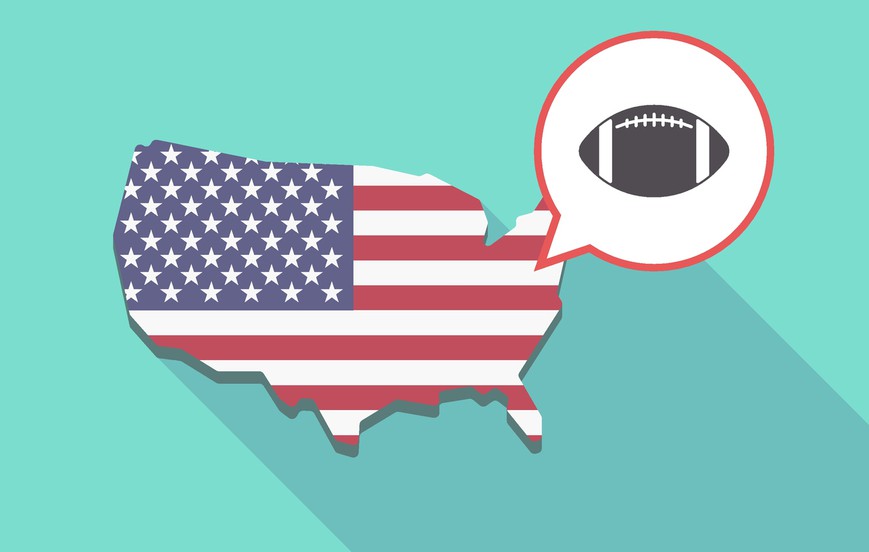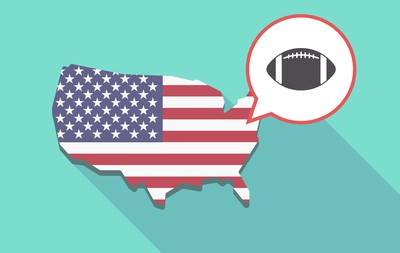

Five US states east of the Mississippi River, many of whom have debated for years whether or not to launch or expand sports betting, are lined up to do just that through the end of the year and into early 2024.
Kentucky will become the 35th state to offer sports betting when its market officially opens on September 7. Maine will likely follow sometime in November, and Vermont has been aiming for a launch on New Year’s Day — January 1, 2024.
North Carolina has had retail sports betting at its three tribal casinos since March 2021, but the state is preparing to launch mobile sports betting sometime between January and June 2024 — with the earliest date being January 8, 2024.
And then there’s Florida. The Sunshine State could be days away from restarting its mobile sports betting enterprise, depending on how legal challenges to the arrangement play out in court.
Who’s Next? Kentucky.
The Bluegrass State, a longtime battleground over the issue of sports betting, will be the next to offer the vertical.
Retail sports betting will launch on September 7, with mobile sportsbooks cleared to start on September 28. Regulators issued licenses to nine (eight mobile) sportsbooks earlier this month. Pre-registration began on Monday.
Bet365, BetFanatics, BetMGM Sportsbook, Caesars Sportsbook, Circa Sports, DraftKings Sportsbook, ESPN Bet, and FanDuel received licenses. Meanwhile, Kambi will launch the eponymous Churchill Downs Race & Sportsbook at Churchill Downs’ four tracks in the state, but only for retail betting.
Kentucky could have as many as 27 sportsbooks because each of the state’s nine horse racetracks is allowed three skins each for sports betting. Each track is also allowed one retail operator among those three providers.
Attempts to enact sports betting have been made every year since 2020, but each effort ultimately fell short. The common denominator for those failed attempts was verbiage that authorized online poker and sports betting.
That may have been a bridge too far in conservative Kentucky. Consider that the bill that ultimately passed in March, HB 551, did not include online poker.
Who’s After That? Maine.
Maine will likely follow Kentucky and become the 36th state with some form of sports betting sometime in November.
It’s been a long wait.
State lawmakers included sports betting as part of a broader tribal sovereignty bill in 2022. Governor Janet Mills signed the bill into law in May 2022, but the bill did not specify a launch date.
Last month, the Maine Gambling Control Unit, an office within the Department of Public Safety, posted on the social media site X (formerly Twitter) that final rules governing sports betting had been submitted to AG Aaron Frey for his review, “with an anticipated adoption in Nov. 2023.
“Barring any hiccups, licenses will be issued on the day of adoption to allow licensees to go live and offer wagers on sports by law and rule.”
To date, only Caesars Entertainment has announced plans to launch in Maine. Last May, Caesars announced a partnership with the Houlton Band of Maliseet Indians, Mi’kmaq Nation, and Penobscot Nation. The Passamaquoddy Tribe was still in talks with operators at the time.
Maine’s new sports betting law allows each tribe to have one mobile sports betting license. The law also allows 10 retail sportsbooks at a variety of properties, including commercial tracks, casinos, and off-track betting (OTB) facilities.
The Oxford Casino Hotel and the Hollywood Casino & Raceway Bangor are eligible to offer retail sports betting. Since Penn Entertainment owns the latter, it’s likely that ESPN Bet will launch there — but no official announcement has been made.
Who’s Ringing in the New Year? Vermont.
Vermonters will sing Auld Lang Syne and place mobile sports wagers on New Year’s Day.
The state’s new gaming law allows for at least two, but not more than six, mobile operators. It also calls for the Department of Liquor and Lottery (DLL) to negotiate revenue-sharing agreements with operators rather than have the legislature enact an across-the-board tax rate for all operators.
DLL anticipates any contracts it signs will call for a launch on January 1, 2024.
Vermont is a small state — it ranks 49th in terms of population, with just 647k residents — so it likely will not make a lot of money from sports betting. Governor Phil Scott’s office projected the state could make $2.6 million in FY 2024, but a legislative body put its estimate at $2.4 million.
Who’s Launching Mobile? North Carolina.
The Tar Heel State should be the next state to launch sports betting. Governor Roy Cooper signed legislation authorizing mobile sports betting on June 14 — coincidentally, on the same day that Scott did likewise in Vermont.
North Carolina will launch sports betting sometime between January and June of 2024. Specifically between January 8 and June 14.
Under the state’s new gaming law, the North Carolina Lottery Commission (NCLC) will serve as regulator and can issue up to 12 mobile licenses. Although no partnerships have been announced to date, it’s very likely that the major sportsbooks known nationally — BetMGM, Caesars Sportsbook, DraftKings Sportsbook, and FanDuel Sportsbook — will be interested in the state, the ninth-largest in population (10.7 million).
Who’s Guess When They Launch? Florida.
Florida is complicated.
The Seminole Tribe and Governor Ron DeSantis agreed to an amended 30-year gaming compact in April 2021. Under the revised agreement, the tribe would serve as the center of a “hub-and-spoke” system for online sports betting, allowing mobile betting anywhere in the state except on other tribal land.
Hard Rock Sportsbook launched on November 1 of that year, but a pair of brick-and-mortar gaming facilities sued over the compact and forced the sportsbook to cease operations three weeks later. The parimutuels argued that the amended compact amounted to an illegal expansion of gaming under the Indian Gaming Regulatory Act (IGRA).
An appellate court panel reversed the district court’s ruling on June 30, but the parimutuels filed their own appeal earlier this month. That means Florida sports betting could launch either in late 2023 or sometime in 2024 — it just depends on what happens in court.

